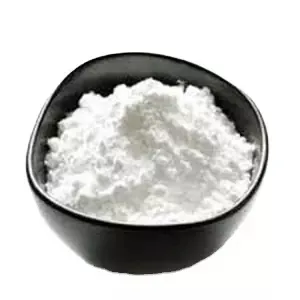Warning: Undefined array key "title" in /home/www/wwwroot/HTML/www.exportstart.com/wp-content/themes/1198/header.php on line 6
Warning: Undefined array key "file" in /home/www/wwwroot/HTML/www.exportstart.com/wp-content/themes/1198/header.php on line 7
Warning: Undefined array key "title" in /home/www/wwwroot/HTML/www.exportstart.com/wp-content/themes/1198/header.php on line 7
Warning: Undefined array key "title" in /home/www/wwwroot/HTML/www.exportstart.com/wp-content/themes/1198/header.php on line 7
- Afrikaans
- Albanian
- Amharic
- Arabic
- Armenian
- Azerbaijani
- Basque
- Belarusian
- Bengali
- Bosnian
- Bulgarian
- Catalan
- Cebuano
- China
- China (Taiwan)
- Corsican
- Croatian
- Czech
- Danish
- Dutch
- English
- Esperanto
- Estonian
- Finnish
- French
- Frisian
- Galician
- Georgian
- German
- Greek
- Gujarati
- Haitian Creole
- hausa
- hawaiian
- Hebrew
- Hindi
- Miao
- Hungarian
- Icelandic
- igbo
- Indonesian
- irish
- Italian
- Japanese
- Javanese
- Kannada
- kazakh
- Khmer
- Rwandese
- Korean
- Kurdish
- Kyrgyz
- Lao
- Latin
- Latvian
- Lithuanian
- Luxembourgish
- Macedonian
- Malgashi
- Malay
- Malayalam
- Maltese
- Maori
- Marathi
- Mongolian
- Myanmar
- Nepali
- Norwegian
- Norwegian
- Occitan
- Pashto
- Persian
- Polish
- Portuguese
- Punjabi
- Romanian
- Russian
- Samoan
- Scottish Gaelic
- Serbian
- Sesotho
- Shona
- Sindhi
- Sinhala
- Slovak
- Slovenian
- Somali
- Spanish
- Sundanese
- Swahili
- Swedish
- Tagalog
- Tajik
- Tamil
- Tatar
- Telugu
- Thai
- Turkish
- Turkmen
- Ukrainian
- Urdu
- Uighur
- Uzbek
- Vietnamese
- Welsh
- Bantu
- Yiddish
- Yoruba
- Zulu
Dec . 16, 2024 23:10 Back to list
Understanding the Uses and Benefits of Propylene Glycol in Various Industries
Understanding Propylene Glycol Uses, Safety, and Environmental Considerations
Propylene glycol, a colorless and odorless liquid, is renowned for its diverse range of applications across various industries. Chemically known as 1,2-propanediol, it is a synthetic organic compound derived from petroleum. Its unique properties, such as hygroscopicity (ability to attract water) and low toxicity, make it a valuable ingredient in food, pharmaceuticals, cosmetics, and industrial applications.
Chemical Properties and Production
Propylene glycol is classified as a diol, which means it contains two hydroxyl (-OH) groups. This characteristic contributes to its solubility in water and its ability to mix with both polar and non-polar substances. The production of propylene glycol typically involves two processes hydration of propylene oxide, a byproduct of petroleum refining, or fermentation from renewable sources such as cornstarch.
Applications in Everyday Products
One of the most common uses of propylene glycol is in the food industry. It is often found in food additives, acting as a humectant that helps retain moisture in products like baked goods, salads, and sauces. It also serves as a solvent for food flavors, colors, and preservatives, enhancing the overall quality and shelf life of these products.
In pharmaceuticals, propylene glycol plays a crucial role as a solvent for active ingredients in injectable medications, cough syrups, and oral solutions. Its low toxicity makes it an ideal choice for formulations administered to humans. Additionally, propylene glycol is used in topical preparations such as ointments and creams, providing moisture and improving texture.
The cosmetic industry extensively utilizes propylene glycol in skincare and haircare products
. It functions as a moisturizer, helping to keep the skin hydrated and smooth. Moreover, it enhances the absorption of other active ingredients, making it a valuable component in formulations aimed at treating dry skin or damaged hair.propylene glycol propylene glycol

Furthermore, propylene glycol finds applications in antifreeze products and de-icing solutions due to its low freezing point. It is also used as a carrier for fragrances and as a surfactant in personal care products, highlighting its versatility across various sectors.
Safety and Regulation
The safety of propylene glycol has been a topic of much discussion. Regulatory agencies like the U.S. Food and Drug Administration (FDA) and the Environmental Protection Agency (EPA) classify propylene glycol as generally recognized as safe (GRAS) when used in food and pharmaceutical applications. The World Health Organization (WHO) has also deemed it safe for use in food.
However, excessive consumption or exposure can lead to potential health concerns. Ingesting large amounts can result in symptoms like nausea, headaches, and dizziness. Although rare, some individuals may have allergic reactions to propylene glycol, leading to skin irritation or respiratory issues. It is essential to use products containing propylene glycol according to guidelines and regulations to minimize risks.
Environmental Considerations
When it comes to environmental impact, propylene glycol is considered to be relatively safe compared to other industrial chemicals. It is biodegradable and does not accumulate in the environment, reducing its long-term ecological footprint. Nonetheless, improper disposal or significant spills can still pose environmental risks, highlighting the importance of responsible handling and management.
Conclusion
Propylene glycol is a versatile compound with numerous essential applications in food, pharmaceuticals, cosmetics, and industrial products. Its ability to retain moisture, enhance solubility, and provide a low-toxicity solution makes it a preferred choice across many industries. While considered safe for use, it is critical to adhere to recommended guidelines to ensure optimal safety for consumers and the environment. As industries continue to evolve, propylene glycol will undoubtedly remain a key ingredient in a wide array of products that enhance our daily lives.
Latest news
-
Certifications for Vegetarian and Xanthan Gum Vegetarian
NewsJun.17,2025
-
Sustainability Trends Reshaping the SLES N70 Market
NewsJun.17,2025
-
Propylene Glycol Use in Vaccines: Balancing Function and Perception
NewsJun.17,2025
-
Petroleum Jelly in Skincare: Balancing Benefits and Backlash
NewsJun.17,2025
-
Energy Price Volatility and Ripple Effect on Caprolactam Markets
NewsJun.17,2025
-
Spectroscopic Techniques for Adipic Acid Molecular Weight
NewsJun.17,2025

